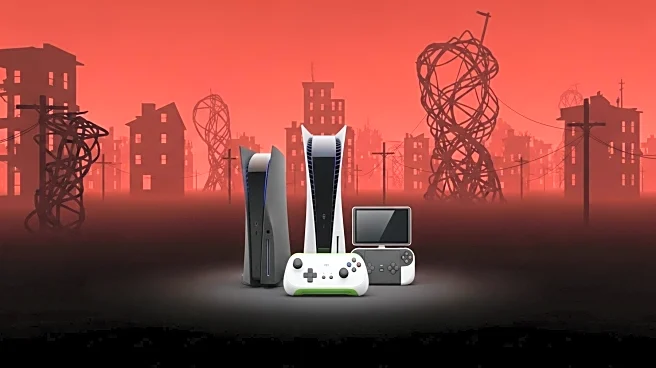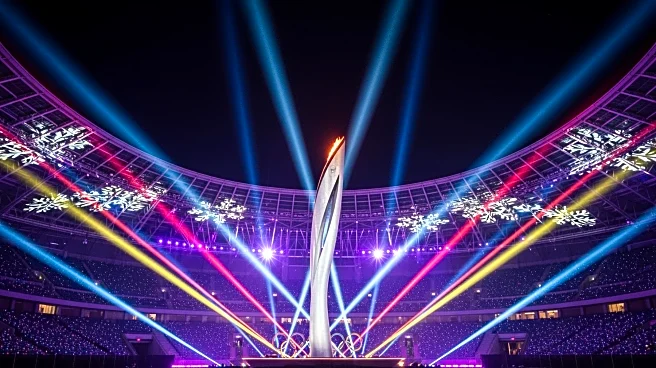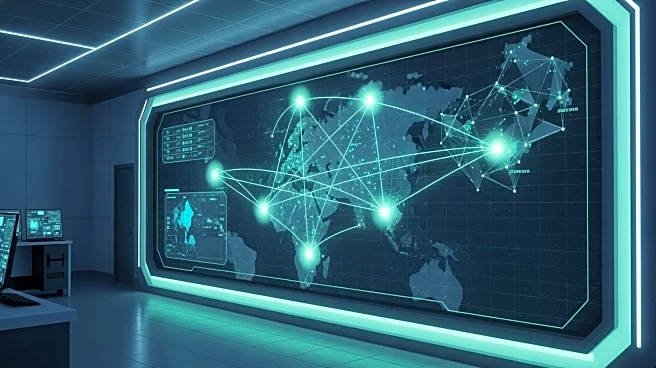What is the story about?
What's Happening?
Silent Hill 2, developed by Bloober Team, is nearing the end of its PS5 console exclusivity period. Originally launched on October 8, 2024, the game was announced as a timed exclusive for the PlayStation 5, with a 12-month exclusivity agreement. As this period concludes on October 8, 2025, changes on the game's official webpage suggest upcoming releases for Xbox Series X/S and Switch 2. This development follows the game's successful run on PS5 and PC, and Konami appears poised to expand its reach to other platforms. The move is expected to rejuvenate interest in the title, potentially accompanied by updates to the PS5 version to address existing technical issues.
Why It's Important?
The end of Silent Hill 2's exclusivity on PS5 marks a significant shift in the gaming landscape, allowing broader access to the title across major gaming platforms. This transition could impact sales and player engagement, as Xbox and Switch users gain access to the critically acclaimed game. For Konami, this expansion represents an opportunity to capitalize on the game's success and potentially increase revenue. The broader availability may also influence competitive dynamics among console manufacturers, as exclusivity agreements often play a crucial role in attracting and retaining gamers within specific ecosystems.
What's Next?
As Silent Hill 2 becomes available on additional platforms, Konami may implement updates to enhance the game's performance, particularly addressing issues with the PS5 Pro version. The release on Xbox Series X/S and Switch 2 could prompt further marketing efforts to maximize visibility and sales. Additionally, the gaming community may see increased discussions and reviews as new players experience the game. Stakeholders, including console manufacturers and game developers, will likely monitor the reception and sales performance closely, potentially influencing future exclusivity agreements and cross-platform strategies.
Beyond the Headlines
The expansion of Silent Hill 2 to other platforms raises questions about the future of console exclusivity in the gaming industry. As developers and publishers seek to maximize their audience, the trend towards timed exclusives may continue, balancing initial exclusivity with eventual cross-platform availability. This approach can foster inclusivity and accessibility, allowing a wider range of players to experience popular titles. Additionally, the technical challenges associated with multi-platform releases may drive innovation in game development, as teams work to optimize performance across diverse hardware configurations.














